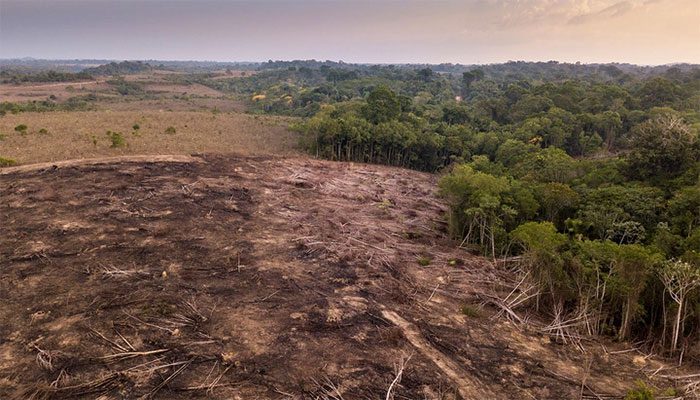A recent study on climate warming warns that ecosystems could collapse much sooner than scientists have calculated.
According to the climate study published in the journal Nature, more than one-fifth of the world’s potential “tipping points” that could trigger disasters—such as the melting of permafrost in the Arctic, the collapse of the Greenland ice sheet, and the abrupt transformation of the Amazon rainforest into savannah—could occur as early as 2038.

Devastated Amazon Rainforest – (Photo: iSTOCK).
In climatology, a “tipping point” is the threshold beyond which the climate system cannot revert to its previous state. For instance, if the Greenland ice sheet collapses, it would also reduce snowfall in the northern part of the island, making much of the ice sheet irrecoverable.
Co-author of the study, Simon Willcock, a professor of sustainability at Bangor University in the UK, stated: “More than one-fifth of ecosystems worldwide are at risk of collapse. As ongoing stresses and extreme events interact, they will drive ecosystems to change rapidly. This could be beyond our control. Once everything reaches a breaking point, it will be too late.”
Scientists have utilized various computer models to simplify the dynamics of ecosystems, predicting their fate while identifying when they might reach their limits.
“Our main finding from four ecological models shows that ecosystems could collapse 30-80% sooner depending on the nature of additional stresses,” said co-author John Dearing, a professor of geo-physics at the University of Southampton in the UK, in an interview with Live Science.
This means that the economic and social costs will significantly increase due to climate change potentially arriving much earlier than expected. Governments will also have less time to respond than initially calculated.
Gregory Cooper, a climate systems researcher at the University of Sheffield in the UK and a co-author of the study, emphasized that it is currently impossible to predict climate-induced breaking points and how human impact on ecosystems will interconnect.
However, any increased pressure on ecosystems will be extremely detrimental and could lead to dangerous consequences.


















































